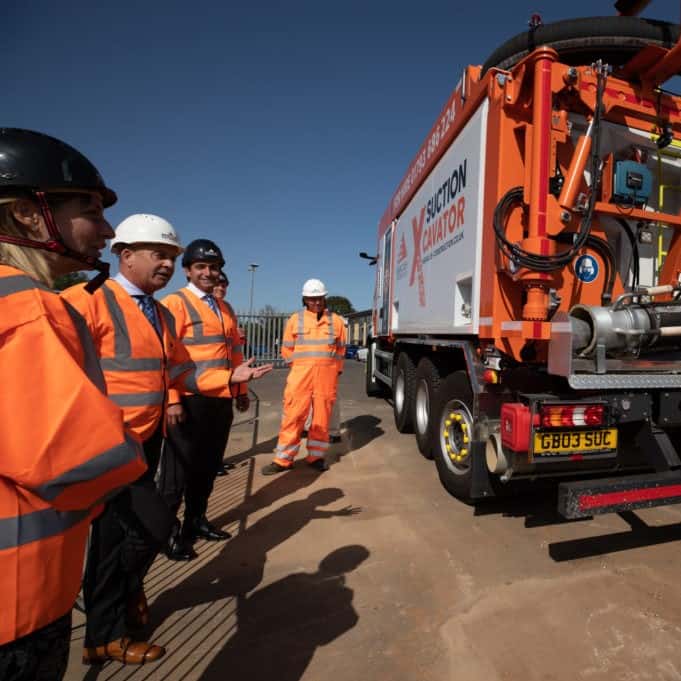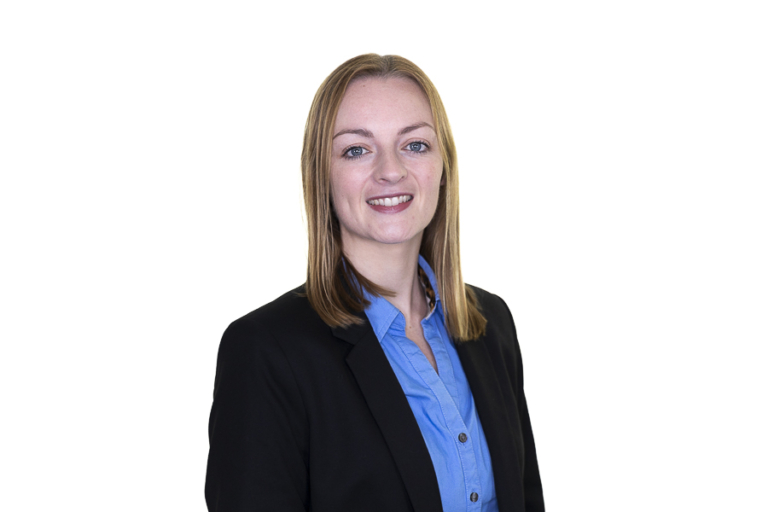How CEO Mark Briffa took Air Partner to new heights

Chris Tarry, recognised as the world's leading independent airline analyst, is the founder of CTAIRA, a specialised aviation advisory and consulting business. As a special contributor for The Business Magazine, Chris talked to Mark Briffa, CEO of Air Partner, a global aviation services provider with a heritage spanning 60 years, and the only publicly listed air charter broker and aviation safety and security consultancy. With its headquarters located alongside Gatwick airport, Air Partner has 16 locations across three continents and employs around 420 aviation professionals globally.
Chris interviews Mark Briffa for The Business Magazine as he shares insights on strategy, leadership, and growth in aviation.
The Chinese character for crisis has two components; one for crisis, the other for opportunity. There is no doubt that the Covid-19 pandemic has been a major crisis, but it has also given rise to opportunities for businesses, including for Air Partner. Indeed, for the financial year to the end of January 2021, management reported record underlying profits for the group. Most recently, when announcing its first half results for the current financial year, the company said that the full year outcome would be materially ahead of what the market was expecting.
This outcome clearly reflects the actions taken by CEO Mark Briffa and his team to move the business from in essence a single activity with a material overdependence on one customer, when he became CEO in 2010, to having a broader spread of activities and capabilities.
In successfully implementing its chosen strategy, the group has been both able to benefit from and protect itself from the volatility of the air charter business, which was, in essence, the only activity when he took over, and also to broaden the customer base to a point where that previously dominant customer now only accounts for some 1% of sales.
The best description of Air Partner is perhaps the one that is used in its report and accounts; it is a 'global aviation services group' with two divisions. The Charter division, which accounted for some 80% of revenues and some 85% of gross profit in the last financial year, comprises: Group Charter, involving aircraft with more than 20 passengers; Private Jet Charter, for aircraft up to 19 seats; 'JetCard' to facilitate the flexibility that clients require re 'on-demand' travel; Freight involving whole or part aircraft charter; 'Specialist Services' which complements the activities across the division and range from aircraft sales to flight operations.
The Safety and Security division is comprised of a number of companies with distinct and market-leading competencies which are well known in their current fields and where there is the opportunity to both increase their market presence and to expand across other industries. These companies focus on regulatory compliance, Training, and Consultancy services, as well as a number of 'managed services' including Wildlife Hazard management at airports, the establishment of aircraft registries, and a capability to provide remote condition monitoring of, currently machinery and equipment at airports.
Mark Briffa, who joined Air Partner in 1995, was appointed CEO in 2010, at an exceptionally challenging time for the group. At the time, demand for Air Partner’s services, particularly private jet charter, had been severely impacted by the 'Great Financial Crisis'; furthermore, the acquisition of what was Gold Air in 2006, and was renamed the Private Jet Operating Company, proved to be the wrong business at the wrong time.
Having dealt with the immediate problems, there was an overt recognition that the nature of the core business and its dependence particularly on the vagaries of the economic cycle meant there were times of 'feast and famine'. Between 2011 and 2015, reported operating profit had halved from £5.2m to £2.6m. Against such a background, there was clearly a need to establish a much more stable core without losing the upside that the charter activities could deliver. In the case of 'Private Jet' and 'Jet Card', this has been particularly evident in the current financial year with the recovery from the worst of the Covid-19 impacts.
"The route chosen to achieve this was to broaden the capabilities of the group with an 'asset-lite' approach where the focus was on the provision of services, training, consultancy, safety, and recovery. The rationale was that demand was generally unaffected by the phase of the economic cycle and where growth in many cases would arise from the growth of the industries which they served, increased regulatory requirements and taking a greater, profitable, market share.
In May 2015 Air Partner acquired Cabot Aviation, which sits within the Charter division. The Group has since bought a further six companies to form the Safety and Security Division. These acquisitions have been of companies that have strong brand values (which will be retained) in their respective areas of activity and where being part of the larger Air Partner Group will enable them to profitably grow more rapidly. Most of these were targeted acquisitions, which were 'bolted on' and did not require a significant diversion of time from running the rest of the business. Taken together, they now account for some 20% of the group, as they have provided a necessary broadening of the base to offset the vagaries of the original air charter activities. Not only is the downside risk to the business from each acquisition small, but each has a material benefit in diversifying the operating risk at a group level. As a result of organic growth within this division, and also the further acquisition of capabilities, there is considerable scope to broaden both the activities and geographic and customer base of the division.
Mark Briffa describes his approach to management as: engagement, building relationships, listening – particularly to his team – and ensuring that people are informed. He is very clear that the best ideas for the business will come from those within the business, and the need is to ensure that there is an environment in which they are confident, and also able, to put the ideas forward. Success here is inevitably a reflection of the approachability of management and its engagement.

Beyond this, as a CEO who leads from the front, there is a need to ensure that his colleagues are on page with him. Achieving this in any business is about ensuring proper communication and, more importantly, discussion. He was very clear on the need to treat people equally, and is also particularly aware of the need to look after his colleagues. When asked what his greatest fears around Covid were, he was clear that it was that he might lose one of his team to the virus. He was also determined to ensure that they were supported to overcome any mental and other health challenges that had resulted from the experiences of the last 18 months.
Despite the actions to broaden the business, Covid was still a challenging time for the business. In the early phases, the business raised some £7.5 million to provide headroom against a background where the initial management focus was on survival.
"A number of the team’s responses will result in long-term changes and benefits for the group and include: a significant improvement in cash management, and massive improvement in the speed of decision making, which enabled the business to take more opportunities arising from Covid, particularly around corporate charter and freight.
Chris concludes: As an analyst, whilst I was always interested in how well a company might do, I was equally if indeed not more interested in how it might perform when there was a difficult operating environment. In business terms, for Air Partner, Covid provided a very clear demonstration of how the strategy that management had followed since 2015 to broaden the base of the business worked at the time of unforeseen and unprecedented disruption, and where they were also able to capitalise on the opportunities that arose for some elements of the core business.
The latest results show a broader based group firing on all cylinders, where the CEO is looking to build on the base across all activities, and where there is a reasonable expectation that the continued success, and reduced volatility, should also be reflected in material increase in shareholder value.
(If you enjoyed this article, consider reading this one too)












